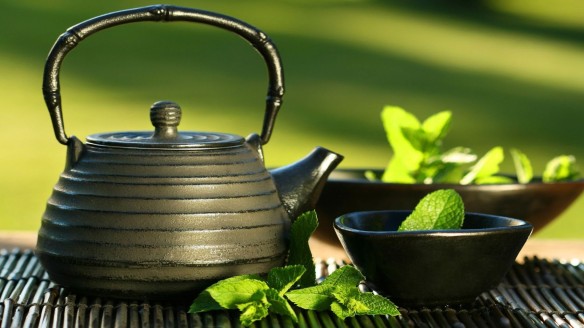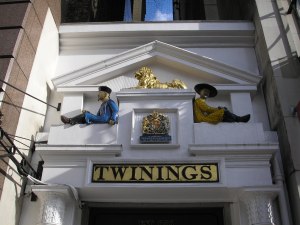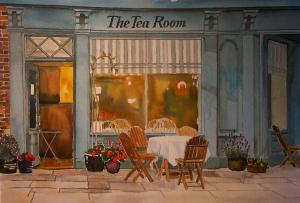 In the eighteenth century Britain experienced considerable demographic growth along with the birth of an industrial economy which brought to extensive social change.The British population doubled after 1721, from 7.1 to 14.2 million people and most of the growth occurred after 1750 and particularly after the 1780s. This was due mainly to a fall in mortality, which was particularly marked during the first half of the century and affected all socioeconomic groups. However, this reduction does not appear to have occurred for economic reasons only, but also for the significant improvement in domestic hygiene, the introduction of smallpox inoculation or the rebuilding of housing in brick and tile. Between 1810 and 1820, average family size reached five or six children per family, the highest rate in any decade in modern British history and this continuous rise in the rates of growth made Britain the world’s first industrial nation.This is in short the explanation you may read in every history book, but what you may not know is that this dramatic increase of people, who started to crowd the new-born industrial districts may have had another cause: tea.
In the eighteenth century Britain experienced considerable demographic growth along with the birth of an industrial economy which brought to extensive social change.The British population doubled after 1721, from 7.1 to 14.2 million people and most of the growth occurred after 1750 and particularly after the 1780s. This was due mainly to a fall in mortality, which was particularly marked during the first half of the century and affected all socioeconomic groups. However, this reduction does not appear to have occurred for economic reasons only, but also for the significant improvement in domestic hygiene, the introduction of smallpox inoculation or the rebuilding of housing in brick and tile. Between 1810 and 1820, average family size reached five or six children per family, the highest rate in any decade in modern British history and this continuous rise in the rates of growth made Britain the world’s first industrial nation.This is in short the explanation you may read in every history book, but what you may not know is that this dramatic increase of people, who started to crowd the new-born industrial districts may have had another cause: tea.
 The population boom of the first half of the eighteenth century clearly coincides, in fact, with the mass adoption of tea as national beverage. The fashion of tea drinking had started to be associated with rising luxury consumerism and became a means for demonstrating status and sophistication. English pleasure gardens, like Vauxhall Gardens, became tea gardens and were popular especially among women who were excluded from the coffee houses. Moreover, tea-shops – such as that first started by Thomas Twining (1717) – began to proliferate and catered the sale of tea to women for brewing it at home. As the preparation of tea was very simple, tea consumption soon surpassed that of coffee. Imports grew from six tons at the beginning of the century to eleven thousand at the end. By the 1850s tea had become tea had become a staple even of working-class diet.
The population boom of the first half of the eighteenth century clearly coincides, in fact, with the mass adoption of tea as national beverage. The fashion of tea drinking had started to be associated with rising luxury consumerism and became a means for demonstrating status and sophistication. English pleasure gardens, like Vauxhall Gardens, became tea gardens and were popular especially among women who were excluded from the coffee houses. Moreover, tea-shops – such as that first started by Thomas Twining (1717) – began to proliferate and catered the sale of tea to women for brewing it at home. As the preparation of tea was very simple, tea consumption soon surpassed that of coffee. Imports grew from six tons at the beginning of the century to eleven thousand at the end. By the 1850s tea had become tea had become a staple even of working-class diet.
 However, it was not only the ease of tea preparation or its delicate, tasty flavour that made this infusion so popular, but rather its natural components. The presence of caffeine, for example, produces addiction and it is also a stimulant. Tea drinking, in fact, was promoted during the Industrial Revolution by factory owners, as it facilitated alertness and concentration. Furthermore, brewed tea possesses several important antibacterial properties that, in times when drinking water could not be considered properly safe, help reduce waterborne diseases: the tannic acid released in the steeping process, for example, kills off those bacteria that haven’t already perished during the boiling of the water.
However, it was not only the ease of tea preparation or its delicate, tasty flavour that made this infusion so popular, but rather its natural components. The presence of caffeine, for example, produces addiction and it is also a stimulant. Tea drinking, in fact, was promoted during the Industrial Revolution by factory owners, as it facilitated alertness and concentration. Furthermore, brewed tea possesses several important antibacterial properties that, in times when drinking water could not be considered properly safe, help reduce waterborne diseases: the tannic acid released in the steeping process, for example, kills off those bacteria that haven’t already perished during the boiling of the water.
Tea addiction and the consequent habit of using boiled water caused a microbial carnage. Physicians observed a dramatic drop in dysentery and child mortality during that period, even because the antiseptic agents in tea pass on to infants through breast feed. With the decrease of waterborne disease agents, the healthy tea drinking population began to swell in number, becoming that immense labor pool that will make the fortune of the country.

Stefy I had no idea about the health effects that tea drinking brought! Hope you are having a great weekend. Hugs from both of us.
Hi Sue , it is always a pleasure to have you here. My past ( 😉 ) week-end was………forget it ! I guess I need I good cup of tea. Hugs from Stefy & Mimmo.
Oh dear that doesn’t sound good at all Stefy. Happy to receive your hugs and the same back to you and Mimmo form Dave and I.
Makes me want to steep a cup of tea! Cheers.
Uhmmmm, you make me wonder that I might ask Twinings for a contribution, this post can be considered a commercial after all. 🙂
Stefy, you may have a second career in advertising. 🙂
You’ll never know 😉
There’s nothing like a good cuppa – and now I know why! Interesting post.
Thanks a lot.
Cheers
Stefy
Great read. I just returned from Sri Lanka where tea is king, We visited the highland tea plantation area and stay in a tea factory converted to a lovely hotel. The highlands are beautiful and Ceylon tea is wonderful. I developed an addition to tea with milk while I was there.
Hi Marie, I’ve been there. Beautiful plantations, but unfortunately I couldn’t completely enjoy those beauties as I don’t like tea. 😦 I do prefer coffee. ( However I met my husband in that trip to Sri Lanka 🙂 ) Hugs. Stefy.
Stefy, Ive always liked Twinings tea. It was so interesting to read about the origin of these teas and how women were excluded from coffee houses. One more reason to drink tea! 🙂
Thanks a lot Carol. I am so glad you enjoyed it. 🙂
I love my cuppa tea Stefy, love it! Yes the boiling water would have been a big boost as far as getting rid of all the nasties were concerned. The introduction of the steam train enabled the fish and chip shop to become entrenched throughout the land.
….. so the new habit of frying fish and chip, destroyed the other bacteria which had miraculously survived the boiling of water for tea. 😀
I’d say so, being delivered from the ports to around the country in a day would have been a good thing too.
Thank you for a very informative and usefull post!
Lovely to see you here. Thanks a lot for your words of appreciation.
Hugs.
Stefy
The British are always characterised as a tea-drinking nation — according to the song (http://lyricsplayground.com/alpha/songs/e/everythingstopsfortea.shtml) “when the clock strikes four | Everything stops fot tea” — but this isn’t an angle I’d really considered before, so thanks!
This is what everybody knows about the British: ” everything stops for tea”. So think about me, all those years spent in London always in search a good cup of espresso coffee as I don’t drink tea ( and beer!!!!!). 😀
Nowadays, of course, you can’t take ten steps in London without encountering another chain coffee shop like Starbucks, Costa Coffee or Caffe Nero. You came at the wrong time!
Yeah, I know. I was in London one year and a half ago, and you know what I did? I had a cup of espresso at Harrods for only, and I say ONLY, £4,50! Standing. 🙂
A very interesting and informative post. Thank you.
Always nice to read your words of kind appreciation. Thanks a lot.
Stefy
Reblogged this on Aquila et Infans and commented:
This is an excellent article on tea in the Industrial Revolution. Very interesting!
Thanks a lot for the reblog and you words of appreciation.
Cheers
Stefy
This was something, are you sure you´re and English teacher or a teacher of everything. You know too much, by the way I drink tea everyday so I should be around for quite some time
Hi Charly, you are too generous, but it is good to know that you drink something healthy after all !!! 😀
Ofcourse, there has to be some kind of variation……
Of course…: D
What an interesting post! I look forward to getting to know your blog better etinkerbell!! All the best – Lisa
Hi Lisa, thank you for dropping by. Hope to see you soon then.
Cheers
Stefy 🙂
Great blog. My first stop here. Such a kick for tea lovers1
This also comes at a time when I am looking high and low for a particular blend of Darjeeling tea and it’s nowhere to be found ;(
Hope you’ll stop here again then. 🙂
See you then and good luck with the tea quest 😀
Cheers
Stefy
This is such an outstanding post… I had no idea that the urban increase of people in the ndustrial districts might be related to… Tea!~. ⭐
a wonderful reading and it is also neat to know about Thomas Twining as well. As a matter of fact I am drinking nowadys his earl grey version! … BTW, I think you may like this post: https://twitter.com/aquileana/status/567453280515940352 ~All the very best to you and toast with cuppa tea!. Aquileana 😀
You know what? I hate tea, I hate the very smell of tea. I do prefer a nice cuppa coffee. I should write a post on coffee to balance, in fact. As usual , thanks for dropping by Aquileana.
Hugs and besos 🙂
Stefy
Great info about tea! Interesting fact. Thank you for sharing!
Thank you so much Amy. 🙂
It’s an interesting article and I have to say thanks to Britain because tea is a fantastic drink to relax myself.On the other hand it’s terrible to know what the tea caused in the past
I may consider a bit reckless this thesis even because it is not written in history books, but it makes sense: tea, with its components such as caffeine and antibacterial properties, and the use of boiled water to prepare it, could have reduced deseases and contributed to raise natality. Of course, this is not the unique reason why English population doubled during 18th century, but it is something that should be studied and, maybe, confirmed. P.S. I prefer coffee too 🙂
Reckless??? How dare you ! 😜 There is scientific evidence, my dear.💁
I only consider this thesis as reckless as others scientifically demonstrated!! 😜
I’ve found this article really interesting and surprising. I never imagined that tea would have such an important role in the growth of English society. What a strange country!!
Althought tea is not the cause of England’s growth in population,I think it had a huge impact on English culture anyway.Tea became one of Britain’s symbols and it helped to develop patriotism between those who drank it. The fact that is very good tasting it is just another asset that tea offers!
Of course, tea is not the cause, but one on the causes which stimulated the growth in population in England.
Hi teacher, the English tea history is so charming.
It’s so interesting thinking about its functions.
Thanks to tea women could finally meet together.
Furthermore tea has several important antibacterial properties which killed the bacteria that survived boiled water.
Now I understand why they still drink it after many years.
Interesting article, especially for me that I love tea (strictly black tea!). As an avid drinker of tea I’ve always wondered why it’s so important in the English culture. I knew that the first tea-shop was born in England, but I could never have imagined how important tea was for the urbanization. Thanks to its benefits it really helped to create this great country as we know it today… No wonder Italians prefer coffee!!!!
It is amazing how a drink like tea has changed the entire society in England. I didn’t know the multiple health effects that a cup of tea can have and now I understand why this drink is so important for English people.
Matteo Troiani 4 E
I knew some tea properties were useful to the body, but I didn’t imagine it was such a revolutionary drink, and that it was so important for the demographic growth of England; now I understand why it was so important for the English culture.
I found this article really interesting but I don’t think it may be the cause of the population increase despite. However, I love tea and I want to thank Britain for this incredible beverage.
francesco rizzitelli 4e
Tea, a simple drink with a mild and delicate flavour, has always been a Britain’s characteristic symbol. But I would have never thought that tea could have such a beneficial effect to the popolation, and mostly that it could have helped the growth of population! In fact I had no idea that tea had important antibacterial properties; now that I know it, I’m going to drink tea with even more pleasure.
This article is really interesting.
I didn’t think that tea could help the development of a nation, though the British were very intelligent to trade tea rather than coffee.
Very interesting post also for me that I don’t like tea.
I had never thought tea had such importance in population growth, also because nobody had spoken about it to me before.
I was impressed especially by the last sentence … ANOTHER fortune for the English people.
Well it only makes sense.I knew tea was amazing,during the winter I drink it every day in all colours and flavours.
Long live teaaa
(Twinings only,I’m V.I.P) 😏
This article is really nice and interesting. I couldn’t imagine that it possessed so many healthy properties and contributed to British demography in the 18th century.Frankly, I’m not a strong drinker since I’m Italian, but a warm tea with biscuits in the afternoon and in a wintery season is really appreciated.
It’s hard to believe that a drink could contribute to the development of a nation, but it’also true that all the great things have little beginnings.
Mattia Russo 4E
A philosopher indeed. 😏
Also this article is particularly interesting. I think the story of the growing population of tea is true because the tea is very good and precisely because it somehow eliminated the bacteria. Personally I really love tea.
I find interesting the fact that tea introduction in Great Britain has been so crucial in contributing to the massive population growth in the 18th century.
It was good to learn that it was not only a style but it was also so healthy
You mean that not only wealthy people used to drink tea that was considered a luxurious habit?
I mean it
Good evening teacher, I am amazed by this news, because I usually drink a cup of tea with biscuits for breakfast and I have never thought about the potential benefits of a simple cup of tea. Of course, now in our century there are many supplements that we can take to have more energy, but I never imagined that in the nineteenth century the secret ingredient that allowed workers to feel better and have more energy to work was hidden in tea. From a scientific point of view, I think it was a great discovery that allowed people to kill the bacteria which could easily infect people
I didn’t imagine tea had been so important for English population, but of course it makes sense, it saved people from many bacteria and diseases.
I love tea and I have always loved drinking it like the English people with some milk at 5pm. I knew that tea culture was very important to the English folks, but I thought that it was also good for health and for society of that time. Especially for women infact they could meet in the tea rooms to talk or discuss topics of that period.